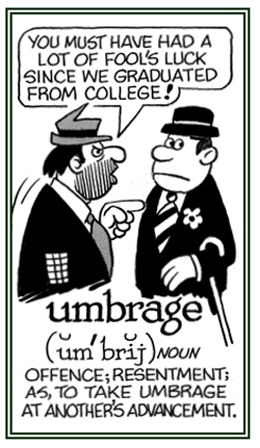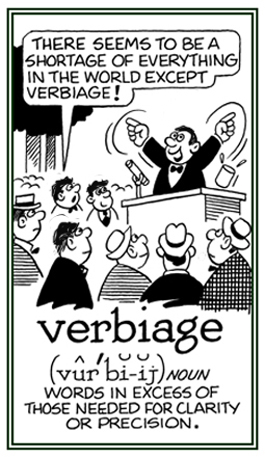-age
(Latin: suffix; quality of, act of, process, function, condition, or place; forms nouns that denote an action; a product of an action; a place, an abode)
The action or work of carrying or moving a boat or its cargo across land from one waterway to another one or around an unnavigable section of water: The portage of the boat was made possible in order to get around the dam.
1. The amount of money that is paid for the delivery of written correspondence: Sally put the right postage on the airmail letters before putting them into the mailbox.
The clerk told Grace how much postage (stamps or labels) she would need in order to mail her packages.
2. Etymology: from Middle French poste, "place where one is stationed" also, "station for post horses" referring to riders and horses posted at intervals along a route to speed mail delivery in relays, from Italian posto, "post, station"; from Vulgar Latin postum, from Latin positum, past participle of ponere, "to place, to put".
1. An old-fashioned and insulting term for an individuaol who lives in a primitive community: In the story Mark was reading, the savage was described as being a barbarian from an uncivilized culture.
2. A cruel person: The husband turned out to be a savage after returning home from consuming a great deal of alcohol and was extremely aggressive towards his family.
2. A cruel person: The husband turned out to be a savage after returning home from consuming a great deal of alcohol and was extremely aggressive towards his family.
Human and domestic waste matter from buildings: Sewage is transported away from homes through a system of sewers.
1. A network of waste pipes that carries away sewage or surface water: A sewerage can be a pipe, or a pipe system, in which liquid is carried away, like a waste pipe.
2. Waste matter, or materials, carried away in sewers or drains: The sewerage wasn't being transported away from the house in the correct way, so the plumber had to be called.
2. Waste matter, or materials, carried away in sewers or drains: The sewerage wasn't being transported away from the house in the correct way, so the plumber had to be called.
1. The right to vote in public elections: Suffrage most often takes place in democratic elections.
2. A vote given in favor of a proposed measure, candidate, etc.: A vote, or suffrage, is needed in order to elect an individual for a specific office or trust.
3. Etymology: "prayers or pleas on behalf of another", from Old French suffrage, from Medieval Latin suffragium, from Latin suffragium, "support, vote, right of voting", from suffragari, "to lend support, to vote for someone"; from sub-, "under" + fragor, "crash, din, shouts (as of approval)"; related to frangere, "to break".
2. A vote given in favor of a proposed measure, candidate, etc.: A vote, or suffrage, is needed in order to elect an individual for a specific office or trust.
3. Etymology: "prayers or pleas on behalf of another", from Old French suffrage, from Medieval Latin suffragium, from Latin suffragium, "support, vote, right of voting", from suffragari, "to lend support, to vote for someone"; from sub-, "under" + fragor, "crash, din, shouts (as of approval)"; related to frangere, "to break".
1. The teaching of an individual student by an instructor: Jim studied music under the tutelage of his father who was a professional musician.
2. A helpful influence or guidance: Jim's company is relying on the tutelage of its new CEO to increase profits.
2. A helpful influence or guidance: Jim's company is relying on the tutelage of its new CEO to increase profits.
1. Offense, resentment; annoyance; displeasure: Professors and students took umbrage at the implication that colleges are filling their heads mostly with trivia.
3. Something that provides shade or a shadow: There are leaves that provide umbrage; such as, the foliage of trees.
4. A vague or shadowy shape or simply an indication; a hint: Shirley had an umbrage, or an inkling, that Steven was going to ask her to marry him because she saw that he had a small present for her which he had bought at a jewelry store.
5. A shadowy appearance of something: When looking out of the living room window that night, Alice thought she saw an umbrage of a man emerge from behind the bushes next to the garage.

© ALL rights are reserved.

© ALL rights are reserved.
Go to this Word A Day Revisited Index
The expression "take umbrage" or "take offence" arises from a metaphorical extension of "shadow" to "suspicion", which took place in French.
2. The slightest indication or vaguest feeling of suspicion, doubt, hostility, or the like: When Susan’s husband called up and said that he had to work late at the office again, she took umbrage and was very disturbed because she suspected that another woman was involved in his repeated delays in arriving home.3. Something that provides shade or a shadow: There are leaves that provide umbrage; such as, the foliage of trees.
4. A vague or shadowy shape or simply an indication; a hint: Shirley had an umbrage, or an inkling, that Steven was going to ask her to marry him because she saw that he had a small present for her which he had bought at a jewelry store.
5. A shadowy appearance of something: When looking out of the living room window that night, Alice thought she saw an umbrage of a man emerge from behind the bushes next to the garage.


Go to this Word A Day Revisited Index
so you can see more of Mickey Bach's cartoons.
1. A custom or tradition: The practice or usage of putting up a Christmas tree at Christmas time is quite common in many countries.
2. The act of employing something; the established custom of using language and contexts correctly: The usage of your debit card is really important in many aspects of life.
2. The act of employing something; the established custom of using language and contexts correctly: The usage of your debit card is really important in many aspects of life.
If Günter in Germany wants to use the correct words in his English essay, he should consult a good book on English usage.
1. An over abundance of the use of words without the necessity of so many of them; an excessive wordiness; as when writing or speaking: Mike had a contract to buy a house which was full of legal verbiage which made it necessary for him to consult another real-estate agent for explanations.
2. Etymology: from Latin verbum, "word."

© ALL rights are reserved.
Go to this Word A Day Revisited Index
2. Etymology: from Latin verbum, "word."

Go to this Word A Day Revisited Index
so you can see more of Mickey Bach's cartoons.
1. A vicar's residence; rectory: The priest in the parish received a salary and lived in a vicarage.
2. A vicar's benefice: A vicarage is the church-related office including the revenue from an endowment is affixed.
3. A vicar's duties or office; vicariate: Mary learned a lot about the activities of her vicarage when she moved to the new town as a vicar, including carrying out religious services like funerals, weddings, and christenings. ,
2. A vicar's benefice: A vicarage is the church-related office including the revenue from an endowment is affixed.
3. A vicar's duties or office; vicariate: Mary learned a lot about the activities of her vicarage when she moved to the new town as a vicar, including carrying out religious services like funerals, weddings, and christenings. ,
1. A number of localities situated near each other and considered as a group: The city and its suburbs are vicinages to each other.
2. The residents of a particular neighborhood: Shawna and Ronnie moved to a vicinage so they could be near their relatives.
2. The residents of a particular neighborhood: Shawna and Ronnie moved to a vicinage so they could be near their relatives.
1. The year or place in which wine of high quality was produced: The vintage of a fine wine includes the year and vineyard or district of the origin or the wine.
A vintage can be high quality wine made from the crop of a single identified district in a good year.
2. The harvesting of grapes for winemaking: Jack was very interested in the vintage of his area, including the first pressing of juice for making wine.
3. A time when something of quality was produced: The store was selling rifles of various sizes and vintages.
1. The face or facial expression and appearance of a person, usually with reference to shape, features, expression, or countenance: The mother's visage was stern and angry as she scolded her son for batting his baseball through the window when he was playing in the backyard.
2. Etymology: from Old French visage, from vis, "face, appearance"; from Latin visus. "a look, a vision"; from the stem of videre, "to see".

© ALL rights are reserved.
Go to this Word A Day Revisited Index
2. Etymology: from Old French visage, from vis, "face, appearance"; from Latin visus. "a look, a vision"; from the stem of videre, "to see".


